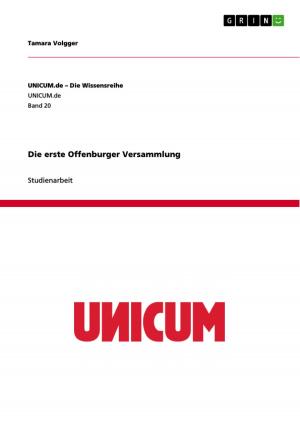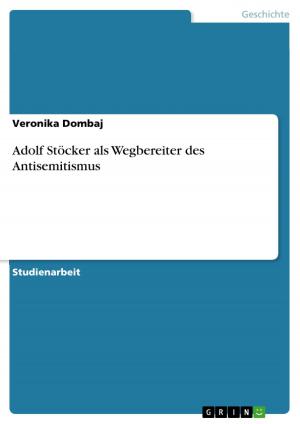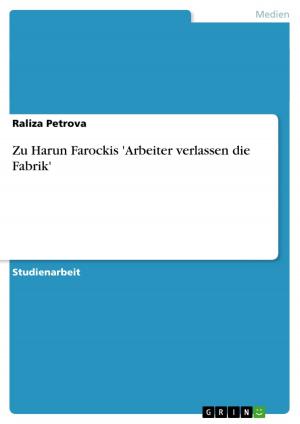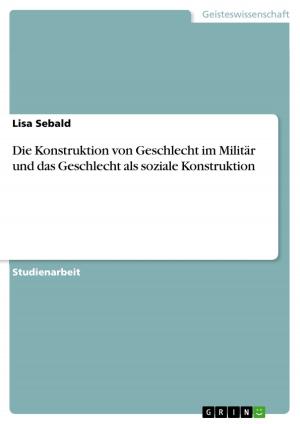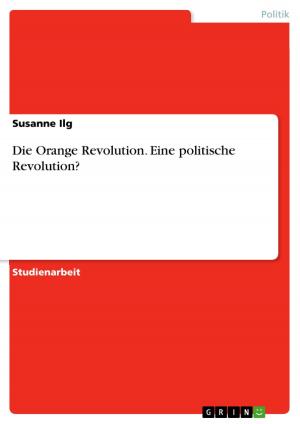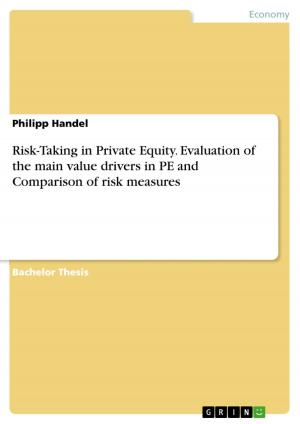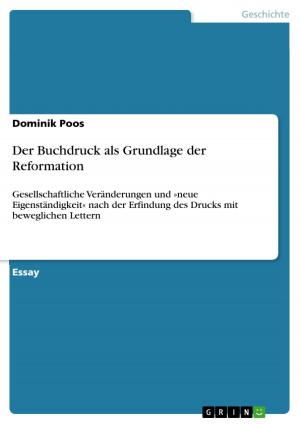Violence in Contemporary British Drama: Sarah Kane's play 'Cleansed'
Sarah Kane`s play 'Cleansed'
Fiction & Literature, Literary Theory & Criticism, British| Author: | Lea Jasmin Gutscher | ISBN: | 9783640220373 |
| Publisher: | GRIN Verlag | Publication: | December 1, 2008 |
| Imprint: | GRIN Verlag | Language: | English |
| Author: | Lea Jasmin Gutscher |
| ISBN: | 9783640220373 |
| Publisher: | GRIN Verlag |
| Publication: | December 1, 2008 |
| Imprint: | GRIN Verlag |
| Language: | English |
Thesis (M.A.) from the year 2007 in the subject English Language and Literature Studies - Literature, grade: 1,3, Free University of Berlin (Fachbereich Philosophie und Geisteswissenschaften Institut für Englische Philologie), course: Abschlussarbeit Englische Literaturwissenschaft, 78 entries in the bibliography, language: English, abstract: When Sarah Kane, born in 1971 in Essex, England, committed suicide at the age of 28 in February 1999, she left five plays and the script for a ten minute screenplay. Kane had dedicated much of her short life to the understanding, exploration and (re)invention of drama. While still at school she started writing and acting, activities which she continued at university, where she further experimented with theatre and where she also took up directing. After leaving the University of Bristol with a First Class Honours Degree in drama studies, she enrolled at Birmingham University and crowned her education with a Master's degree in playwriting. After several minor dramatic experiments, staged as student productions in unofficial venues, her first full-length play, Blasted, premièred at the Royal Court Theatre in London in January 1995. The play immediately became notorious for its depiction of all kinds of physical and verbal violence for which it was fiercely attacked by both public opinion and reviewers. The fact that the plays which followed contained many unspeakable scenes of sheer cruelty, earned her the reputation as the enfant terrible of contemporary British drama. During her brief career Sarah Kane created a body of work that brought her both success and notoriety. Her controversial theatre divided critics and audiences from the beginning. While some attacked her persistently, others recognised her as a new voice, and after she explored and discovered different linguistic and theatrical devices, critical approval followed.
Thesis (M.A.) from the year 2007 in the subject English Language and Literature Studies - Literature, grade: 1,3, Free University of Berlin (Fachbereich Philosophie und Geisteswissenschaften Institut für Englische Philologie), course: Abschlussarbeit Englische Literaturwissenschaft, 78 entries in the bibliography, language: English, abstract: When Sarah Kane, born in 1971 in Essex, England, committed suicide at the age of 28 in February 1999, she left five plays and the script for a ten minute screenplay. Kane had dedicated much of her short life to the understanding, exploration and (re)invention of drama. While still at school she started writing and acting, activities which she continued at university, where she further experimented with theatre and where she also took up directing. After leaving the University of Bristol with a First Class Honours Degree in drama studies, she enrolled at Birmingham University and crowned her education with a Master's degree in playwriting. After several minor dramatic experiments, staged as student productions in unofficial venues, her first full-length play, Blasted, premièred at the Royal Court Theatre in London in January 1995. The play immediately became notorious for its depiction of all kinds of physical and verbal violence for which it was fiercely attacked by both public opinion and reviewers. The fact that the plays which followed contained many unspeakable scenes of sheer cruelty, earned her the reputation as the enfant terrible of contemporary British drama. During her brief career Sarah Kane created a body of work that brought her both success and notoriety. Her controversial theatre divided critics and audiences from the beginning. While some attacked her persistently, others recognised her as a new voice, and after she explored and discovered different linguistic and theatrical devices, critical approval followed.

